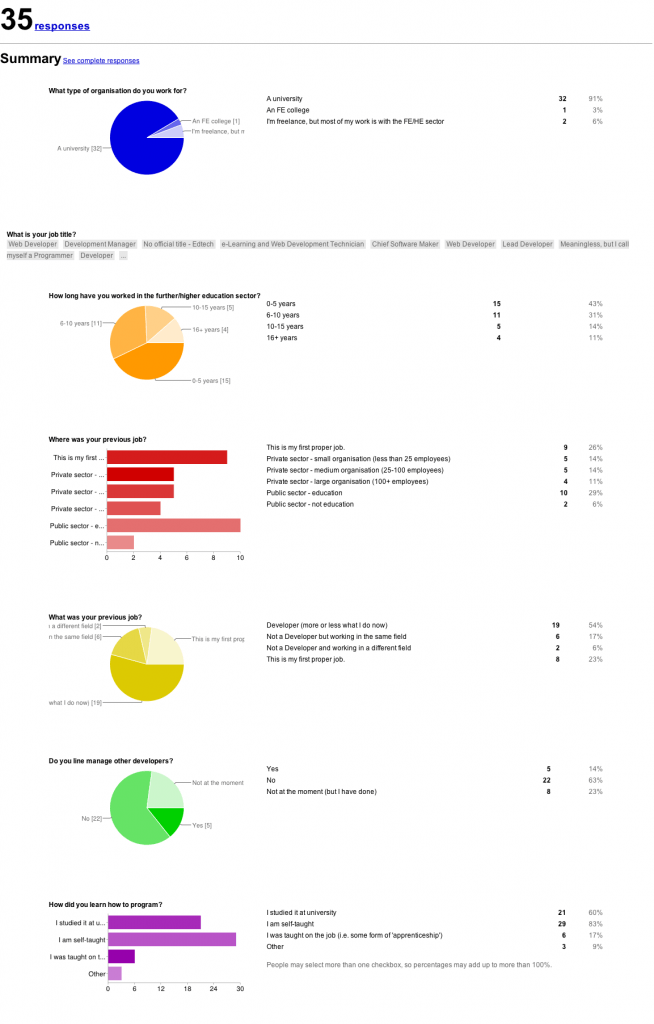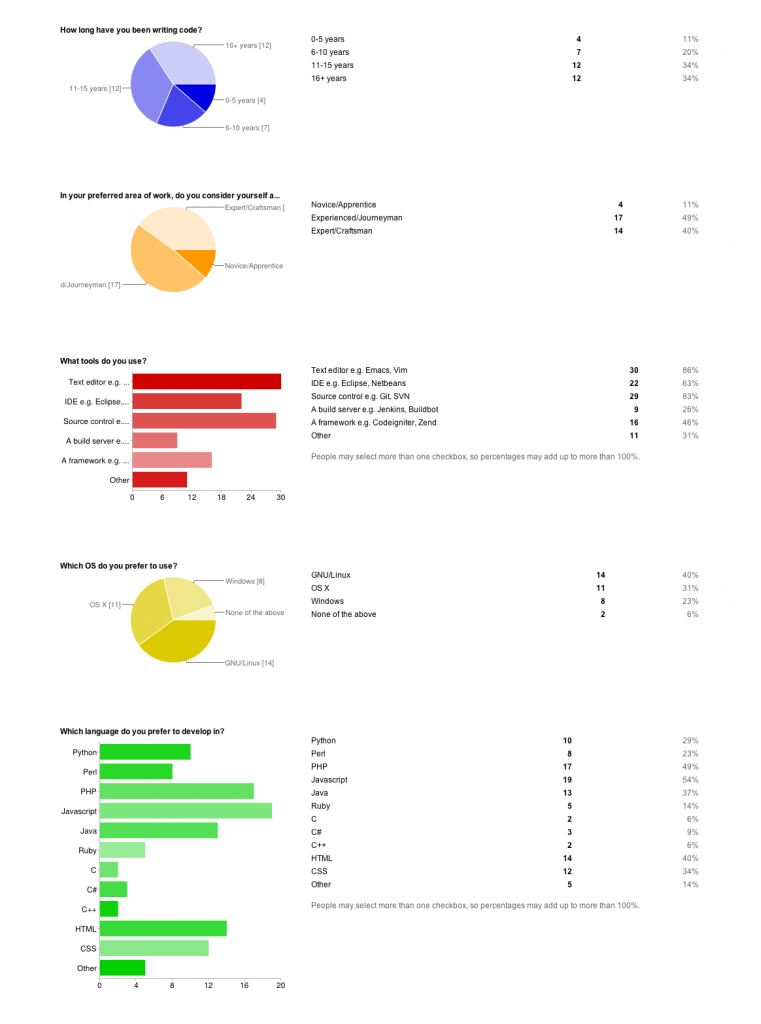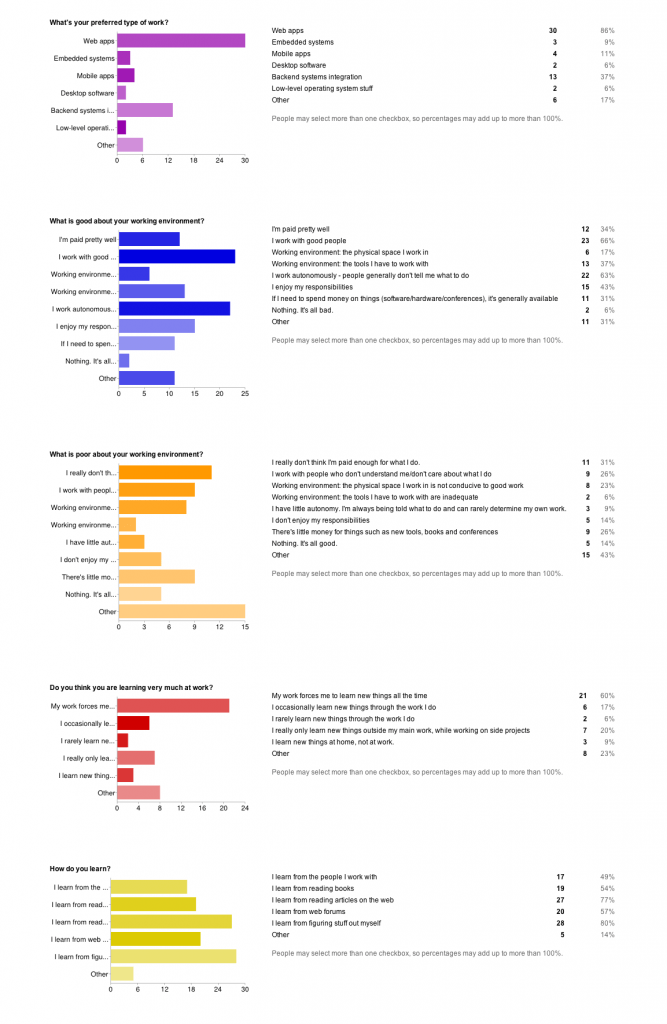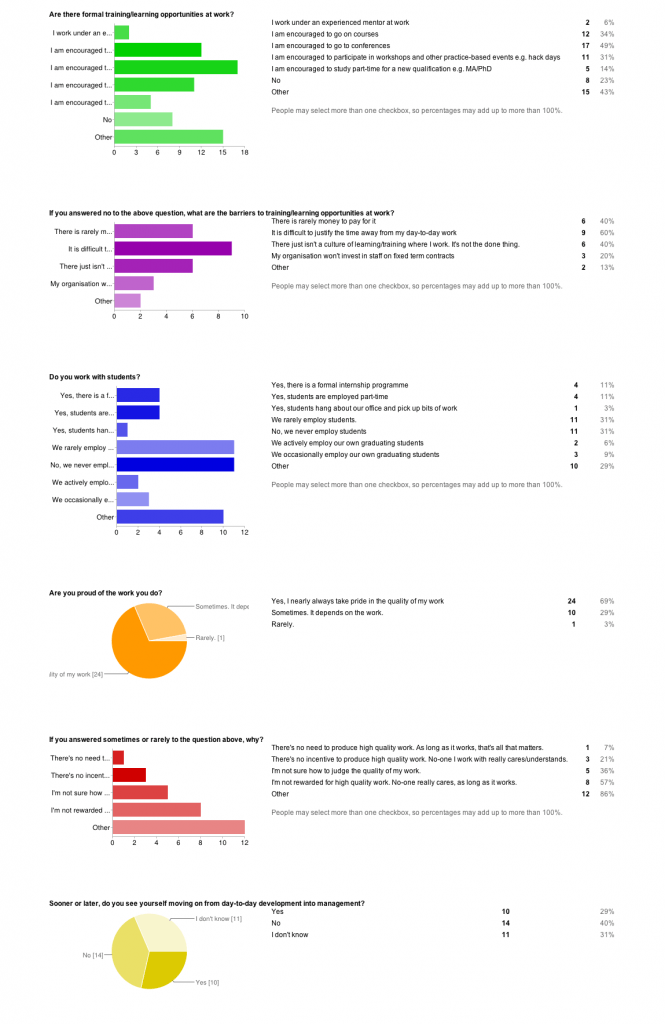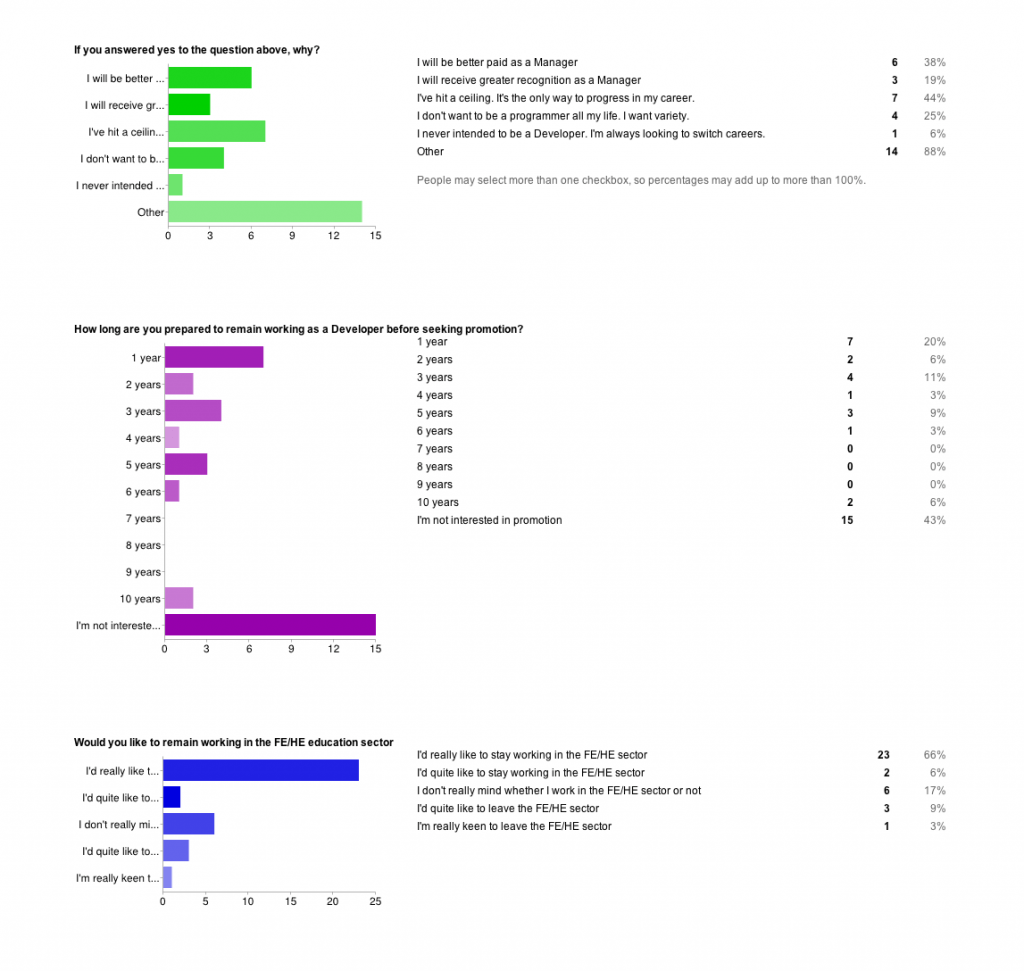As I mentioned a few weeks ago, while attending Dev8D, I surveyed developers working in or for universities. Here are the results. Click on the images below to view them full size. The data can be downloaded (minus email addresses and institutional affiliation).
What does the survey tell us? Well, it’s only 35 people out of about 250 that attended the conference. I also posted the link on Twitter, so it was open to abuse (it certainly wasn’t under controlled conditions!), but looking through the data, I don’t think it was spammed.
The last question shows that about two-thirds of respondents are keen to remain working in the sector and just under half of respondents are not looking for promotion. I expected that to be higher, given that a similar number have only worked in HE for 0-5 years, but maybe they’re entering at a level where promotion is less important to them. About a quarter of people said it was their first proper job. Other people are entering the sector from both public and private organisations in equal measure. A large majority of respondents are or have been in line management positions. Just under a third of developers can see themselves moving into management positions, away from day-to-day development, while a similar number aren’t sure.
In terms of how long they have been writing code, there was an even spread across the range of years and a corresponding response to whether people consider themselves novices, experienced or expert. Two thirds of respondents studied programming at university, but a larger number consider themselves self-taught. The two responses are not exclusive of course. The majority of people prefer web development and the choice of programming languages reflects that, too. There’s lots of use of source control applications, about half of people are using formal development frameworks and fewer people are using Continuous Integration.
Two thirds of people said that they work autonomously, are proud of the work they do, and get on with their colleagues, which is nice to hear 🙂 However, only a third of people think they are paid pretty well and just under a half said that they enjoy their responsibilities 🙁
About two thirds of respondents feel that their work forces them to learn new things all the time. While others only learn new things occasionally or on side projects. The majority of people learn from figuring it out on their own, but many people also learn from web articles, forums, books and colleagues. Training opportunities also seem to be available and, not surprisingly given we were at Dev8D, about half of respondents are encouraged to go to conferences and workshops. Of course, time and money keep people from attending such events, but more worryingly, there’s evidence that at some institutions, it’s ‘not the done thing’.
From my own work, I was interested to see that there’s little culture of involving students in the work of developing services for HEIs, with two-thirds of people saying they never or rarely employ students.
There’s more detail in the numbers, so do have a look for yourself. For me, this was a useful first attempt to get a sense of the motivation, opportunities, interests and challenges for hackers working in universities. I intend to follow it up with a more formal and controlled survey, as well as observation of teams across the country. If you’d like to invite me to observe and interview you and your team, please do let me know 🙂
Comments about the survey and the results are welcome below, too. Thanks.
